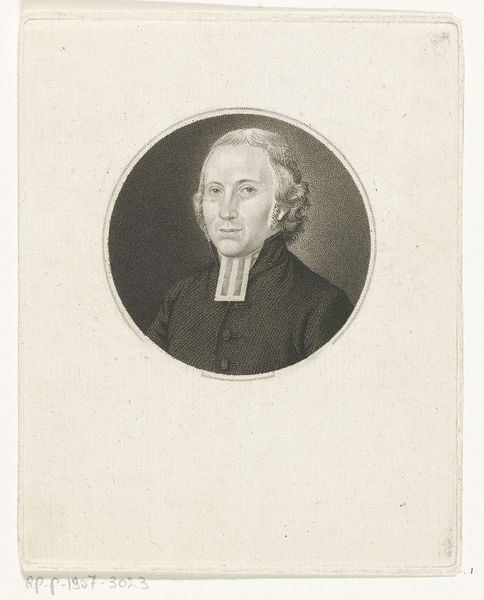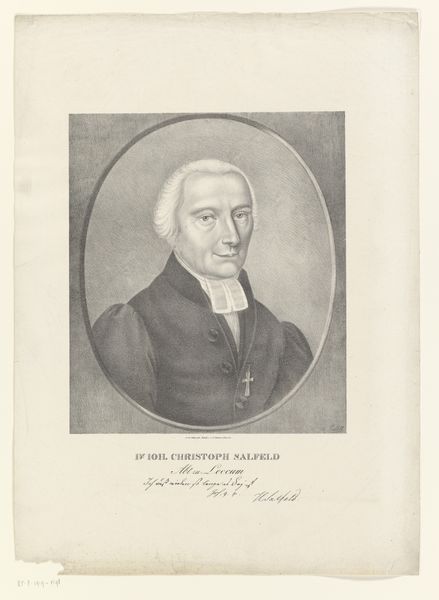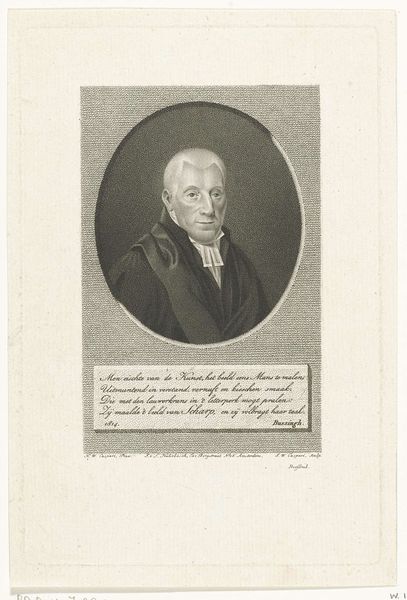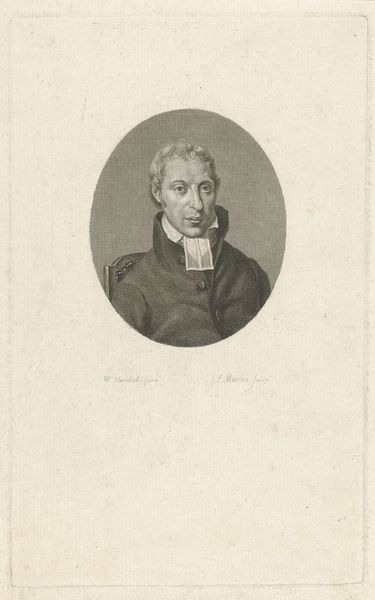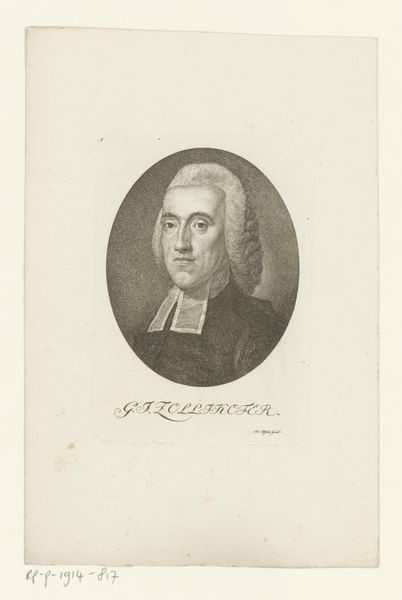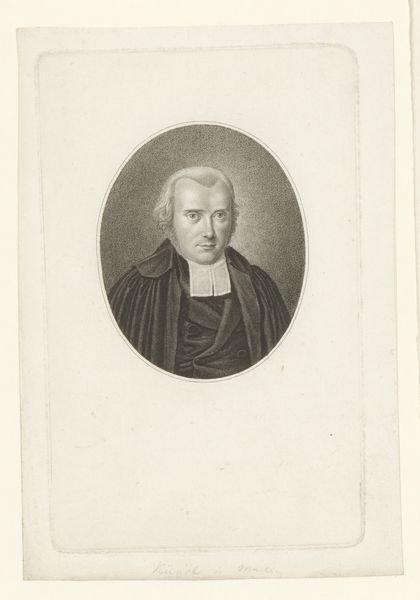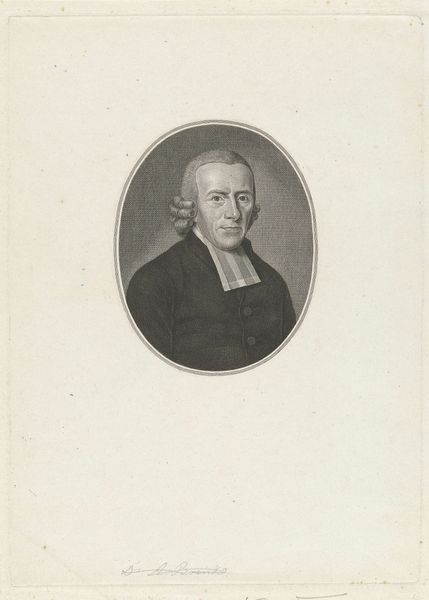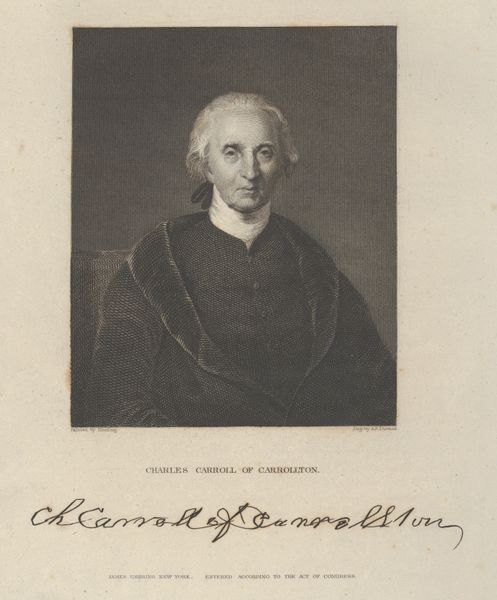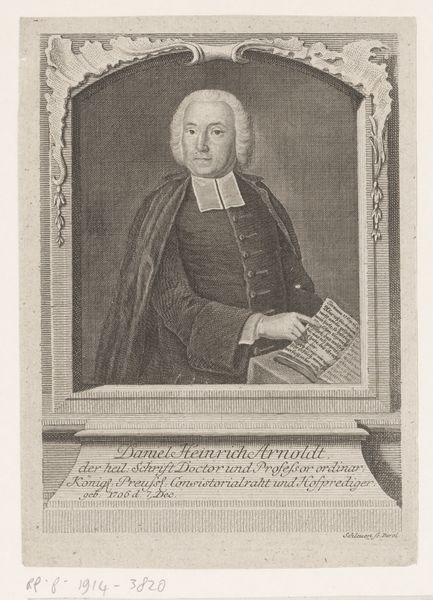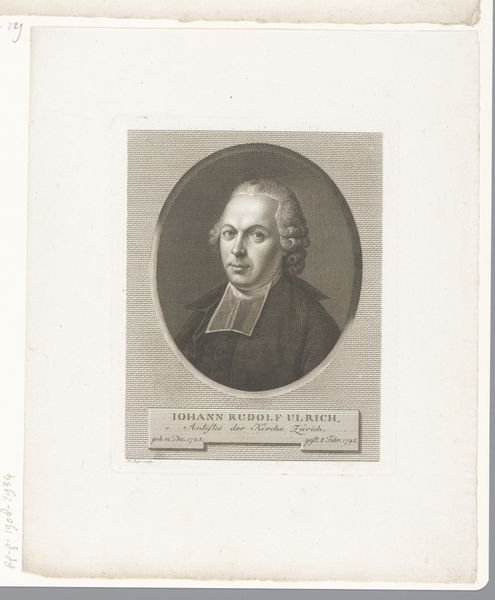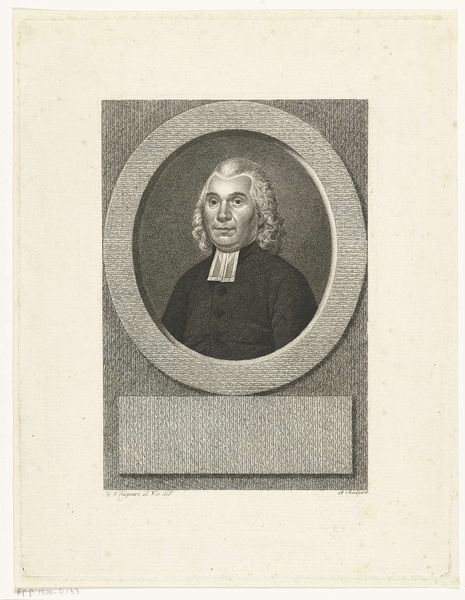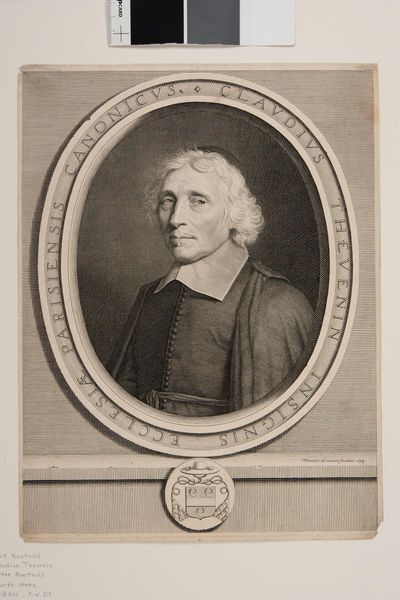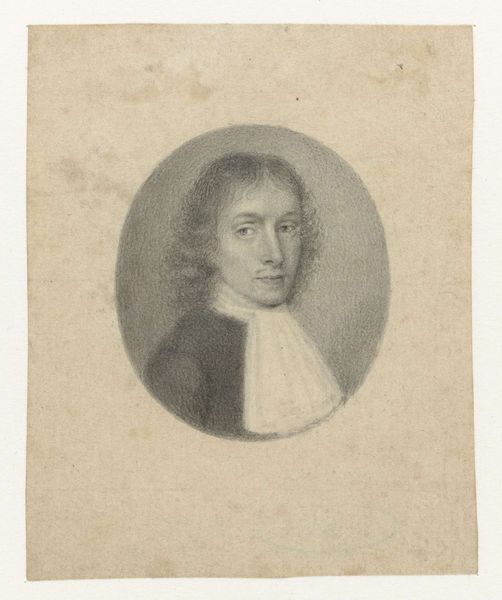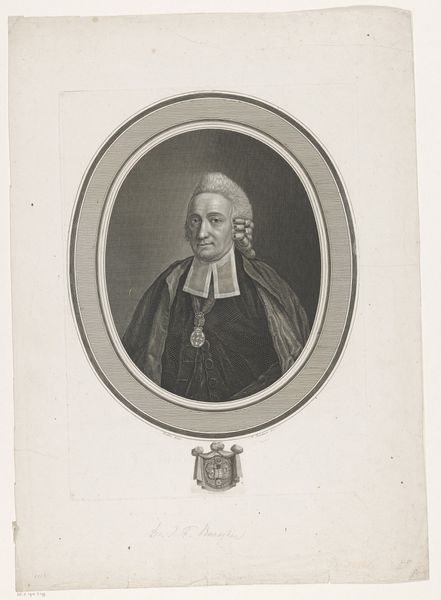
print, engraving
#
portrait
#
pencil drawn
#
neoclassicism
# print
#
old engraving style
#
pencil work
#
engraving
#
realism
Dimensions: height 153 mm, width 122 mm
Copyright: Rijks Museum: Open Domain
Curator: Here we have "Portret van Lodewijk Ten Bokkel" created between 1789 and 1822 by Jan Willem Caspari. It’s an engraving. Editor: It’s austere, almost stark. The limited tonal range enhances that sense of formal severity. What do we know about Lodewijk Ten Bokkel? Curator: He was a Dutch minister. The portrait follows the conventions of its time, but look closer. The clothing, especially that distinctive collar, signifies his position. Editor: Indeed, the three vertical stripes create a focal point, drawing the eye upwards toward the face. The artist utilizes this to masterfully manipulate visual direction within the limited space. It’s all carefully structured. Curator: The way the artist uses light to define the face suggests spiritual intensity. Think of other clerical figures in art history; is there a resonance? What shared iconography exists here? Editor: I think that the very deliberate, crisp lines create the sense of a particular kind of person; very rational, very… contained, perhaps. Curator: Notice the almost perfect symmetry and its immediate implication: order, and even piety, qualities that a community would expect in its spiritual leaders. The engraving as a medium allows for exact reproduction, circulating images of authority throughout society. Editor: And there’s something in the detail of the hair; a softness, a natural element that works in counterpoint to the formality of the pose. I enjoy seeing that. It enlivens what could have been a purely conventional piece. Curator: So you see here not only the portrait of a man, but a cultural symbol. How did a person broadcast themselves within the visual language available? This print provides important insight into social values. Editor: Yes, it speaks to how a person in 18th-century Holland crafted and controlled his image. Curator: Image, meaning, power. Thank you for highlighting this, in all its delicate precision. Editor: It was my pleasure.
Comments
No comments
Be the first to comment and join the conversation on the ultimate creative platform.
